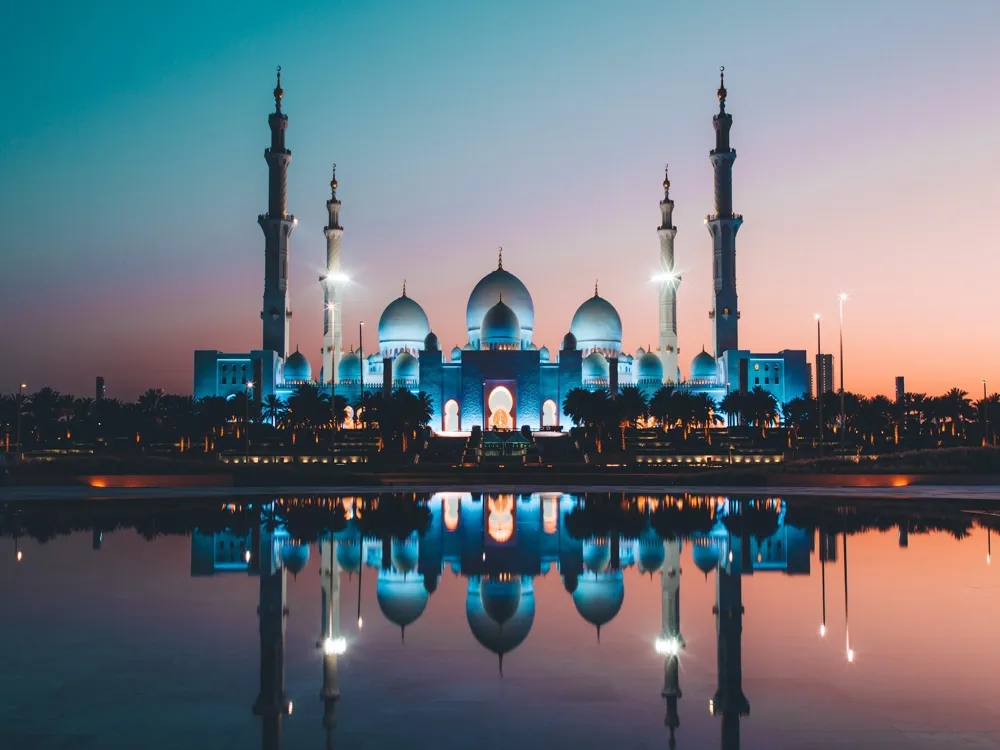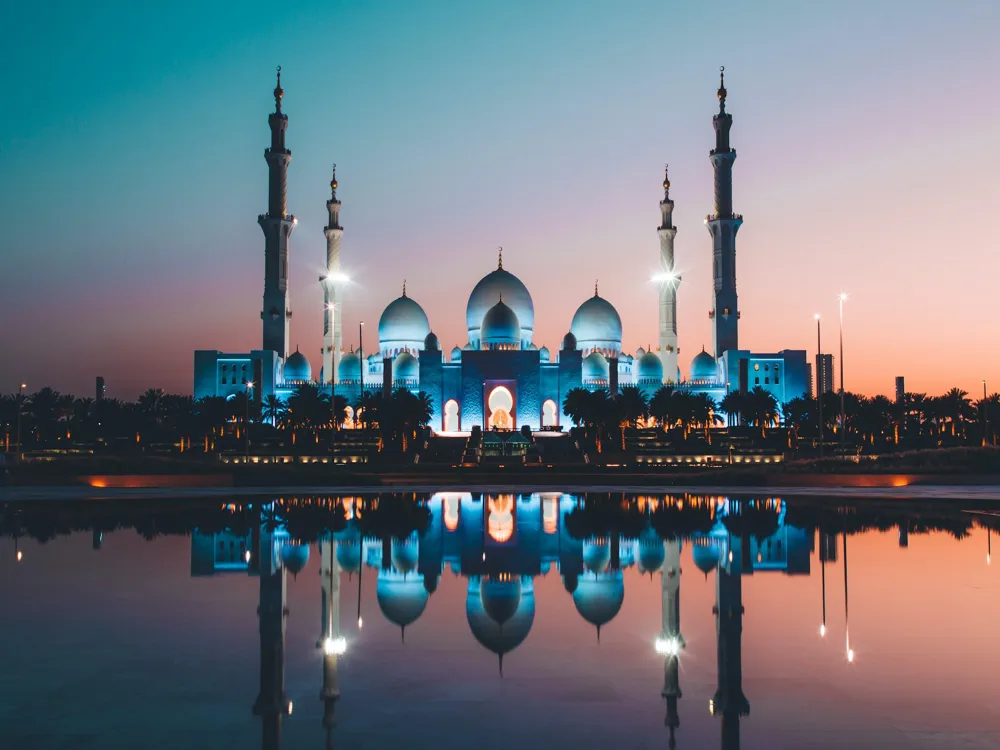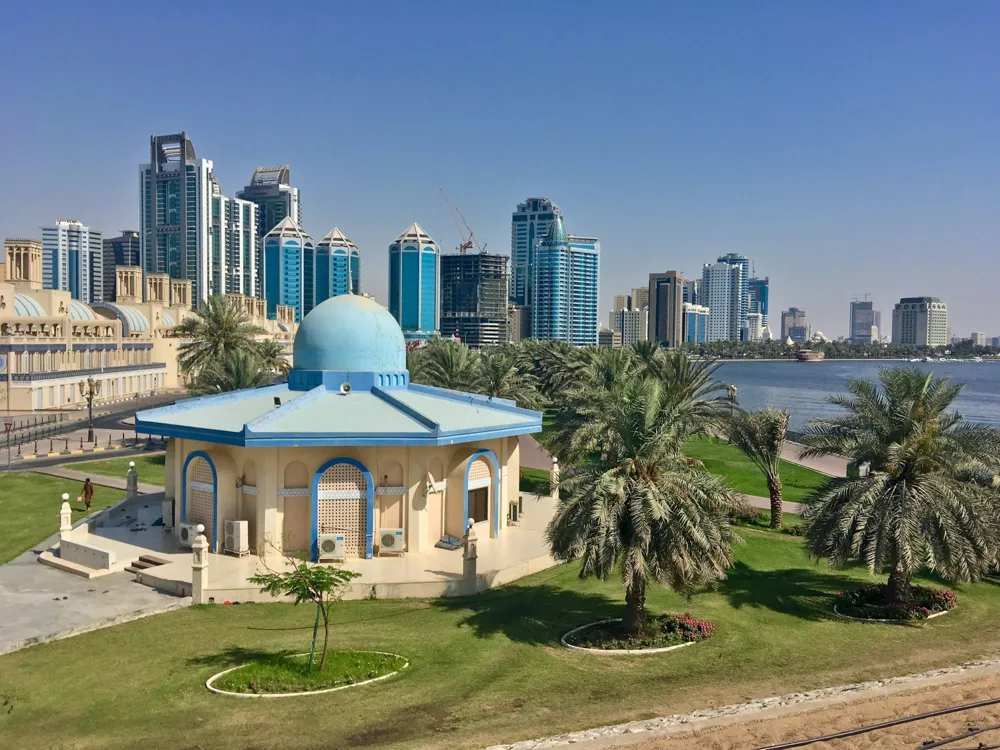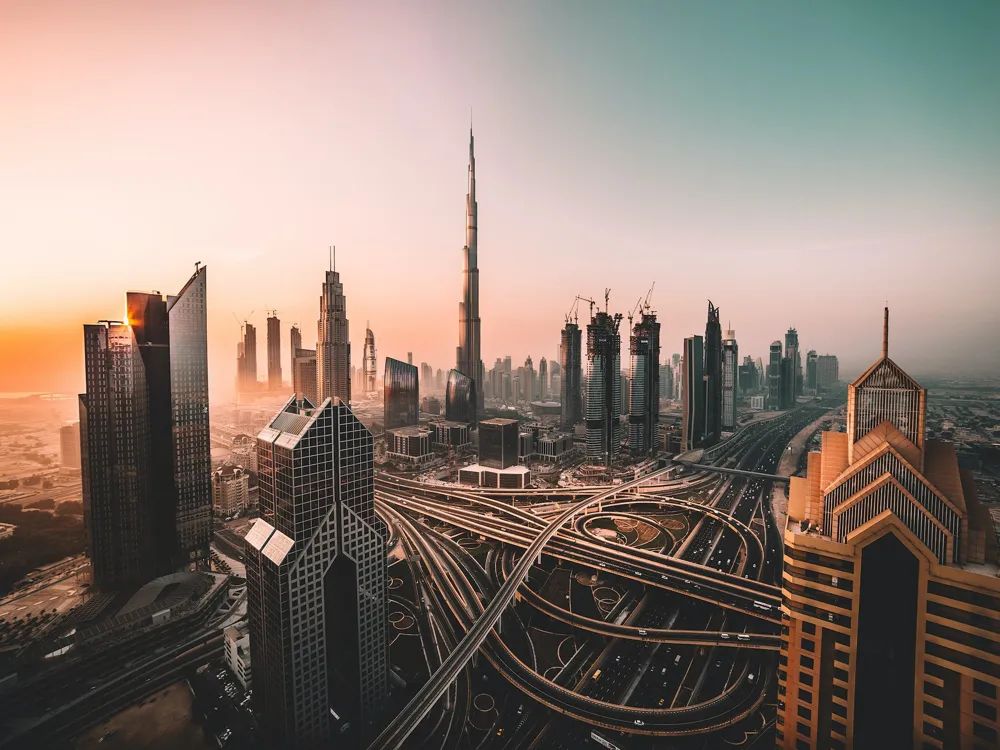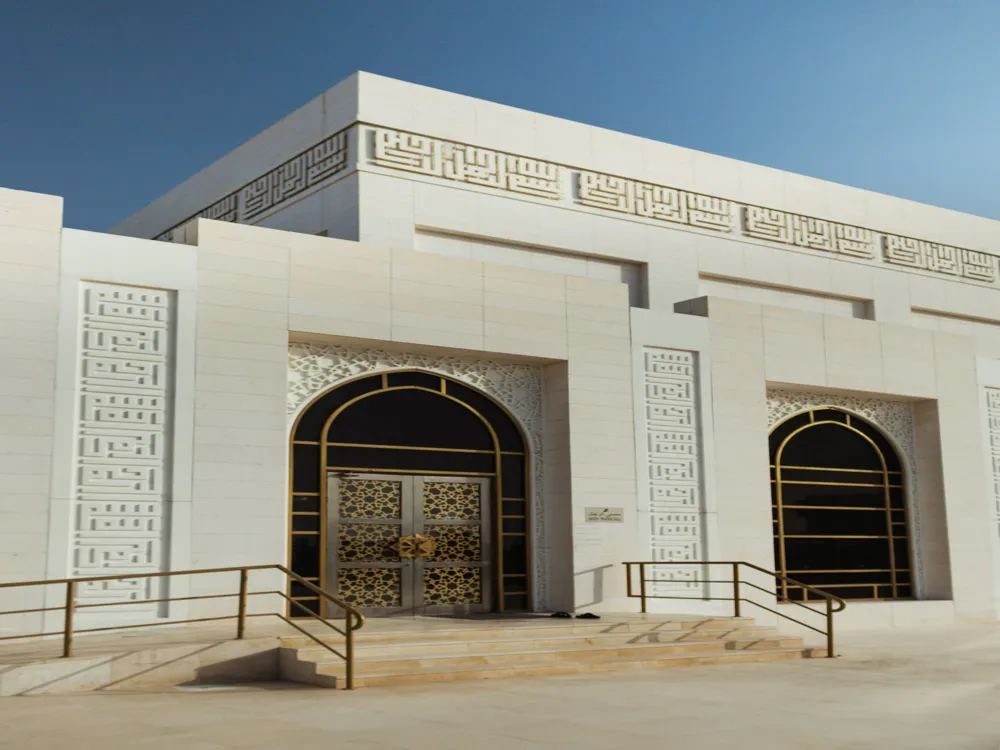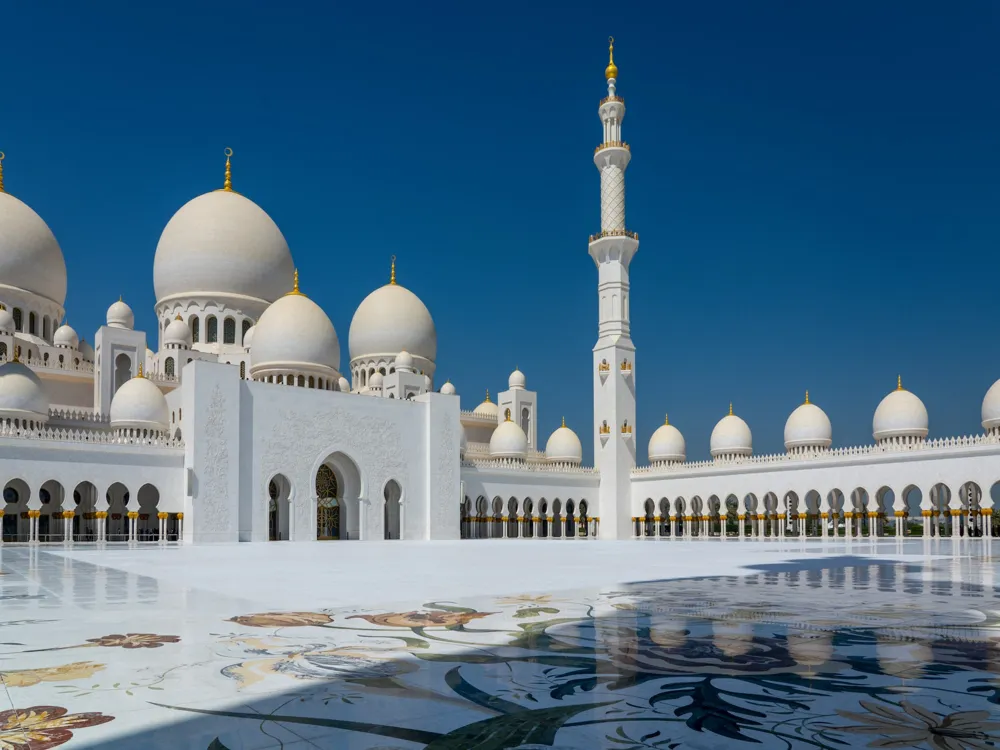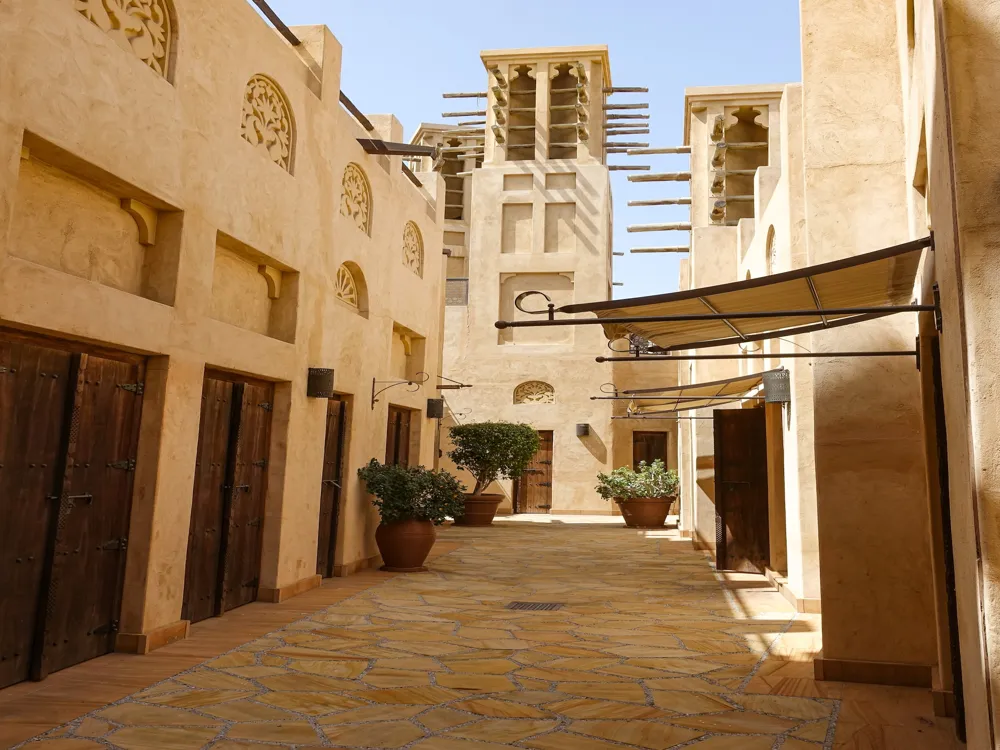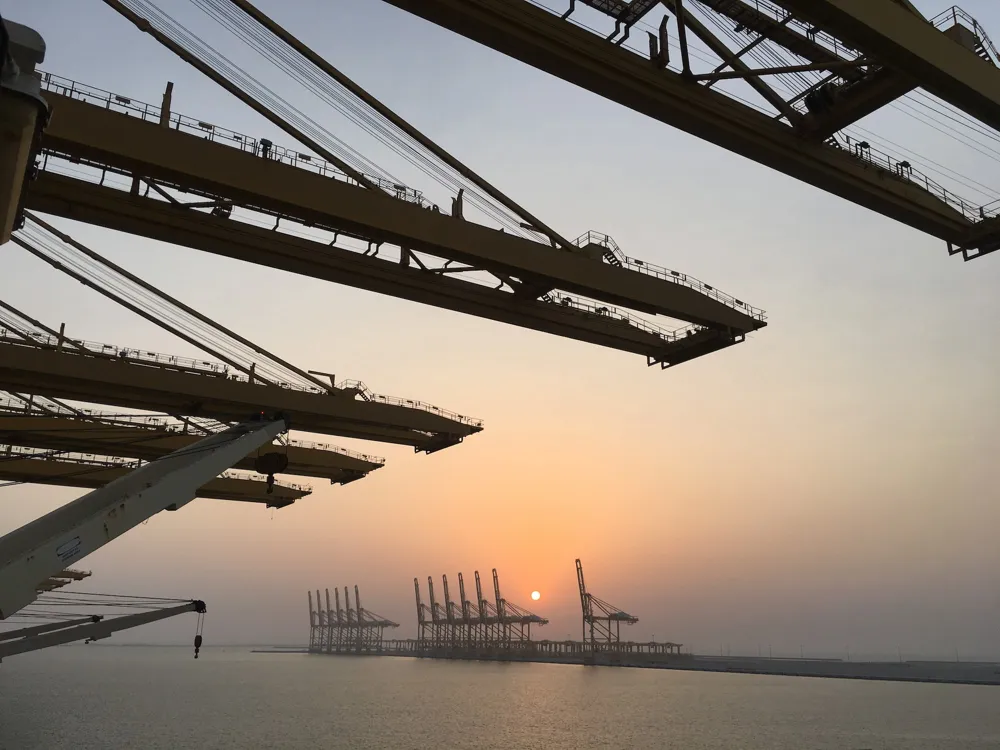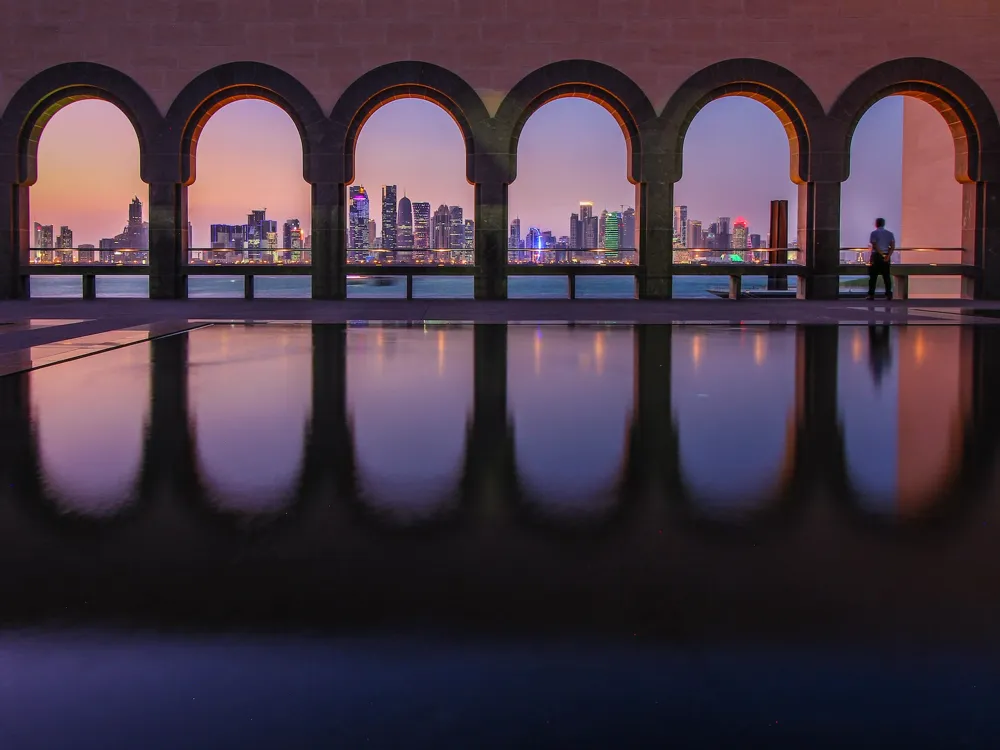Abu Dhabi, the capital city of the United Arab Emirates, is a fascinating blend of traditional Arabian charm and modern innovation. Located on an island in the Persian Gulf, the city's journey from a modest fishing village to a bustling, cosmopolitan metropolis is a testament to its dynamic evolution. Abu Dhabi's strategic location made it an essential trading post in ancient times, and today, it has transformed into a center of political, industrial, cultural, and commercial activities in the UAE. One of the most striking aspects of Abu Dhabi is its commitment to preserving its rich cultural heritage amidst rapid modernization. The city is home to several heritage sites and museums that narrate the story of the region and its people. Simultaneously, it has embraced modernity, as seen in its skyline dotted with skyscrapers, shopping malls, and entertainment complexes. This balance of old and new makes Abu Dhabi a unique and captivating destination. Abu Dhabi's economy is primarily driven by oil exports, but in recent years, there has been a concerted effort to diversify into other sectors like tourism, real estate, and financial services. This diversification has further enriched the city's cultural tapestry, attracting a multinational workforce and fostering a cosmopolitan atmosphere. The city's commitment to sustainability and the environment is also noteworthy. Despite its rapid growth, Abu Dhabi has implemented several initiatives to preserve its natural habitats and promote sustainable living practices. Its visionary leadership plays a crucial role in guiding the city toward a future that honors its past while embracing innovation and progress. Abu Dhabi's architecture is a spectacular display of traditional designs infused with modern aesthetics. The city's architectural landscape is a testimony to its cultural heritage and forward-thinking vision. Traditional structures in Abu Dhabi often feature elements like wind towers, intricate arabesques, and courtyards, which are not only aesthetically pleasing but also serve functional purposes like natural cooling in the desert heat. In contrast, contemporary buildings in Abu Dhabi are characterized by innovative designs, cutting-edge technology, and sustainable practices. The city's skyline is adorned with skyscrapers that showcase the brilliance of modern architecture. Landmarks like the Emirates Palace, Etihad Towers, and the Capital Gate building are prime examples of this architectural fusion. These structures are not just visually stunning; they are also engineered to be energy-efficient and environmentally friendly. Abu Dhabi's commitment to cultural preservation is also evident in its architectural projects. The Sheikh Zayed Grand Mosque, a magnificent structure that blends traditional Islamic architecture with modern techniques, stands as a symbol of this commitment. The Louvre Abu Dhabi, designed by renowned architect Jean Nouvel, is another iconic structure that reflects the city's cultural ethos. Its design, inspired by traditional Arab architectural elements, creates a mesmerizing interplay of light and shadow. The city's architectural evolution continues as it embraces futuristic projects like the planned smart city of Masdar. Masdar is envisioned to be a fully sustainable, zero-carbon community, incorporating the latest in green technologies and smart design. This project, among others, positions Abu Dhabi as a leader in innovative, sustainable urban development. Abu Dhabi is best visited during the cooler months from November to March. During this period, the weather is pleasant, making it ideal for outdoor activities and exploring the city. Visitors should respect local customs and traditions. Dress conservatively, especially when visiting religious sites, and be mindful of local etiquette and manners. Public transport in Abu Dhabi is efficient and reliable. Taxis are readily available, and the city also has a bus network. For a more personalized experience, consider renting a car. Abu Dhabi offers a diverse culinary scene. Visitors should try local dishes like Harees and Machboos, and enjoy the city's array of international cuisine. Abu Dhabi is one of the safest cities in the world. However, standard safety precautions should be taken, especially in crowded areas and while using public transport. Abu Dhabi is well-connected to the rest of the world through its international airport, Abu Dhabi International Airport. The city is also accessible by road from neighboring Emirates and other countries. For sea travel enthusiasts, Abu Dhabi has a cruise terminal. Within the city, a well-developed network of roads and public transport makes commuting convenient and efficient. Read More:Overview of Abu Dhabi
Architecture of Abu Dhabi
Tips When Visiting Abu Dhabi
Best Time to Visit
Cultural Etiquette
Transportation Tips
Food and Cuisine
Safety and Security
How To Reach Abu Dhabi
Sheikh Zayed Grand Mosque
Abu Dhabi
₹ 23,000 onwards
View abu-dhabi Packages
Weather :
Tags : Mosque
Timings : 9 AM - 9 PM (Saturday - Thursday), Tours: 10 AM, 11 AM and 5 PM Additional tours: 2 PM, 7 PM (Saturday) 5 PM, 7 PM (Friday)
Time Required : 1 - 2 hours
Entry Fee : Free
Planning a Trip? Ask Your Question
Abu-dhabi Travel Packages
View All Packages For Abu-dhabi
Top Hotel Collections for Abu-dhabi

Private Pool

Luxury Hotels

5-Star Hotels

Pet Friendly
Top Hotels Near Abu-dhabi
Other Top Ranking Places In Abu-dhabi
View All Places To Visit In abu-dhabi
View abu-dhabi Packages
Weather :
Tags : Mosque
Timings : 9 AM - 9 PM (Saturday - Thursday), Tours: 10 AM, 11 AM and 5 PM Additional tours: 2 PM, 7 PM (Saturday) 5 PM, 7 PM (Friday)
Time Required : 1 - 2 hours
Entry Fee : Free
Planning a Trip? Ask Your Question
Abu-dhabi Travel Packages
View All Packages For Abu-dhabi
Top Hotel Collections for Abu-dhabi

Private Pool

Luxury Hotels

5-Star Hotels

Pet Friendly





